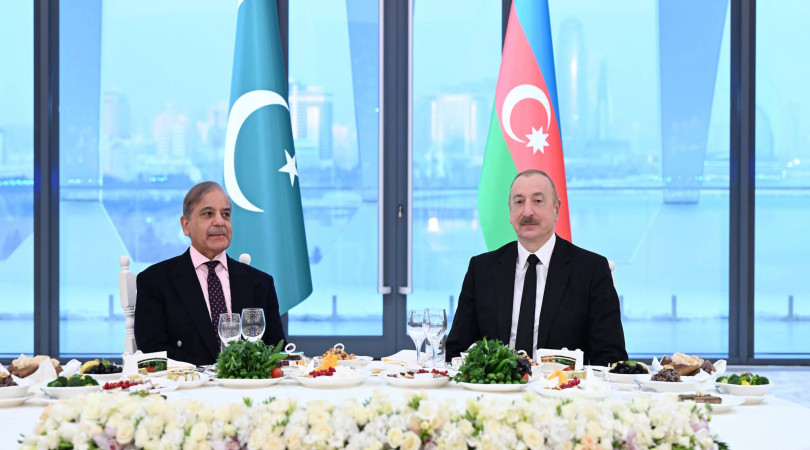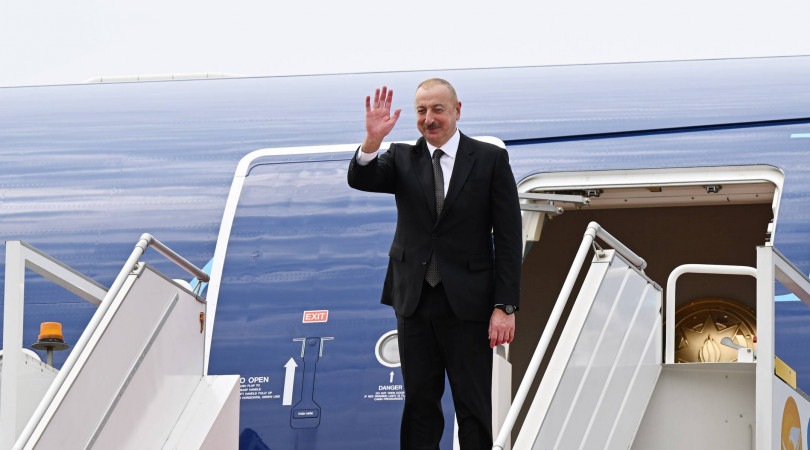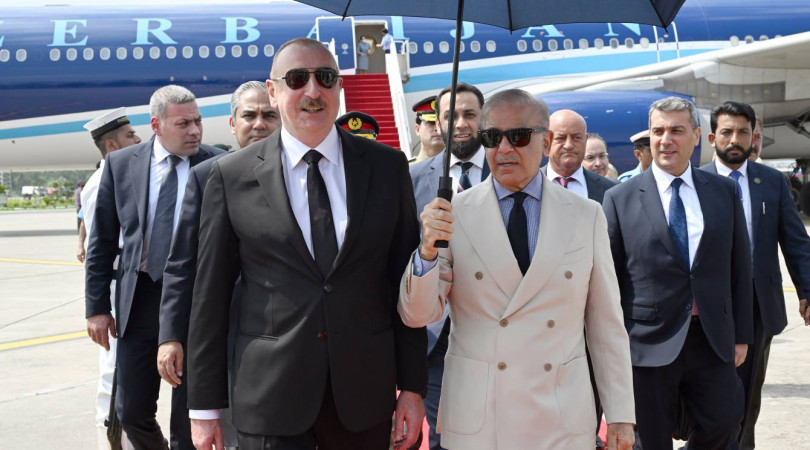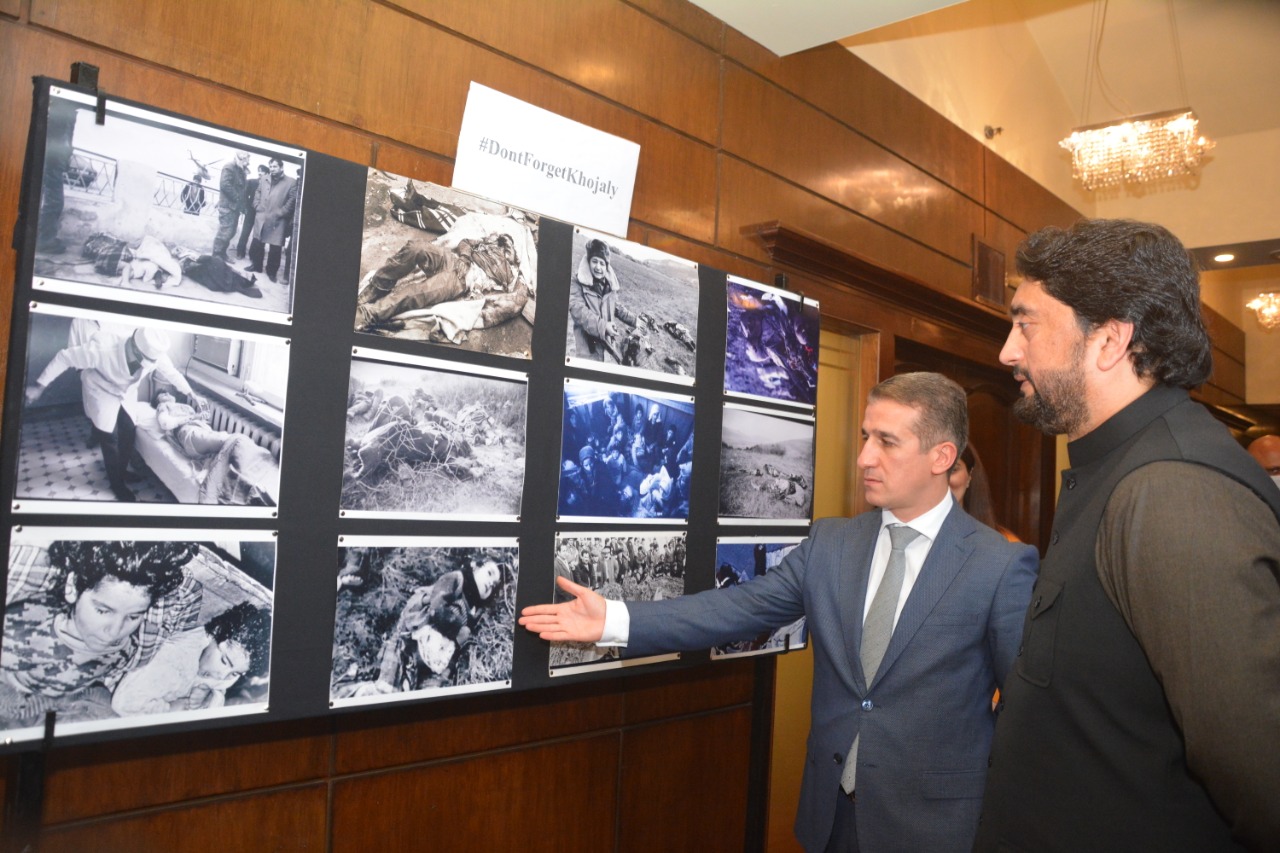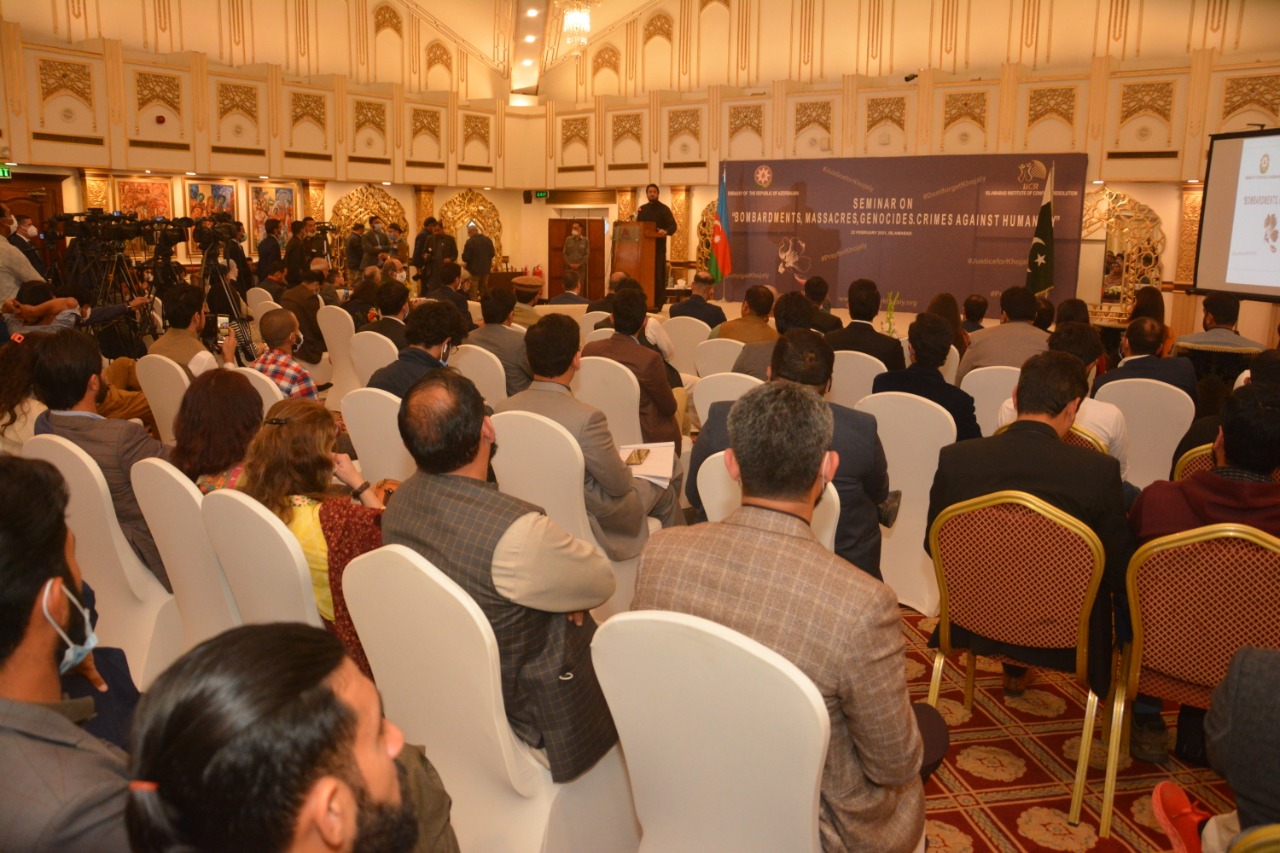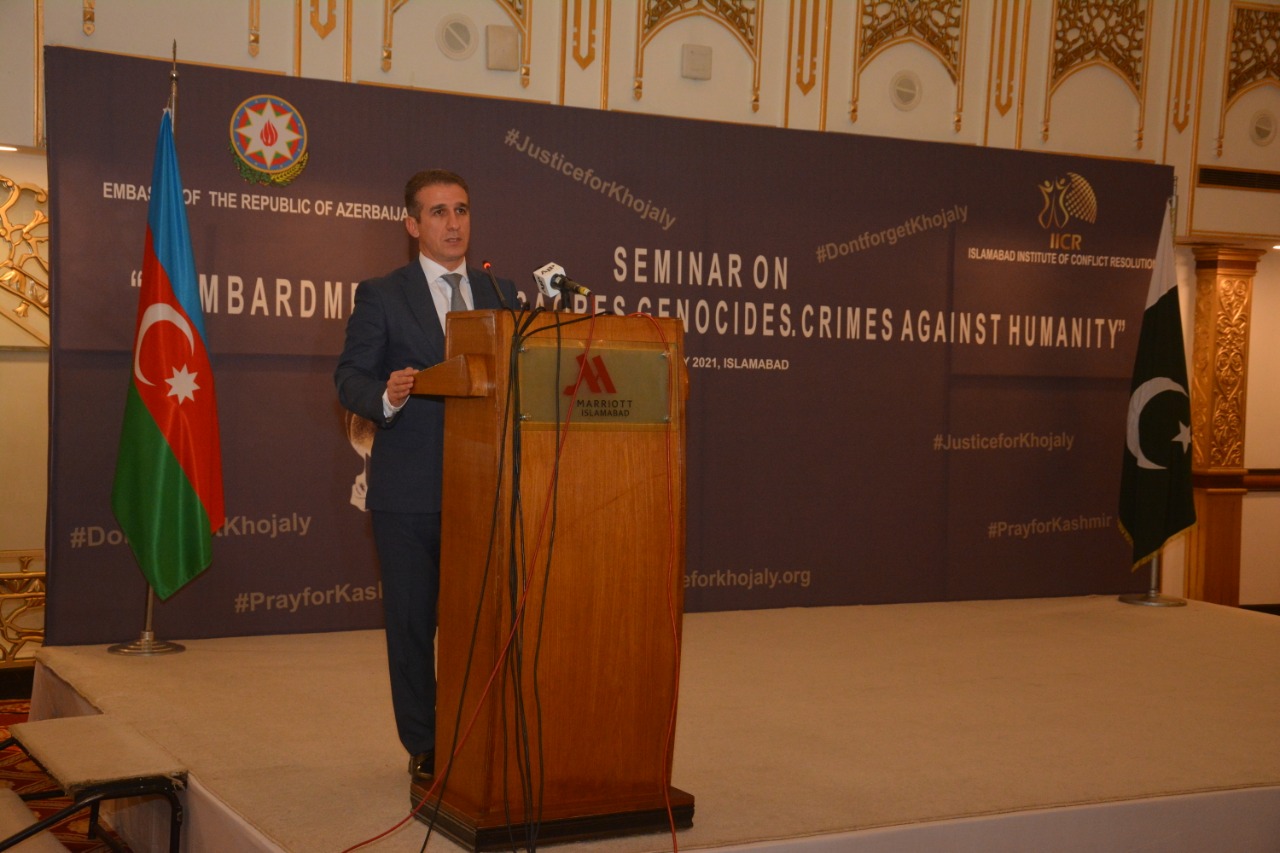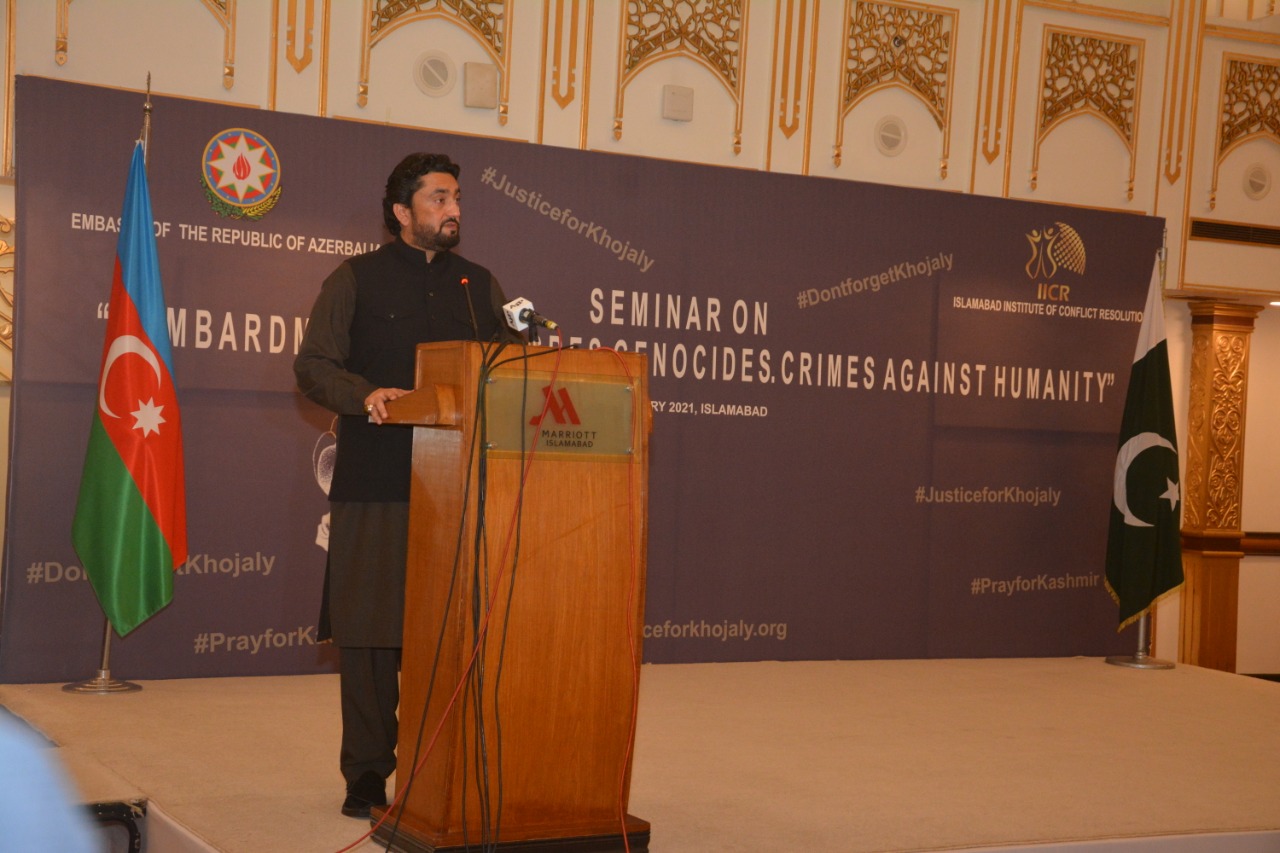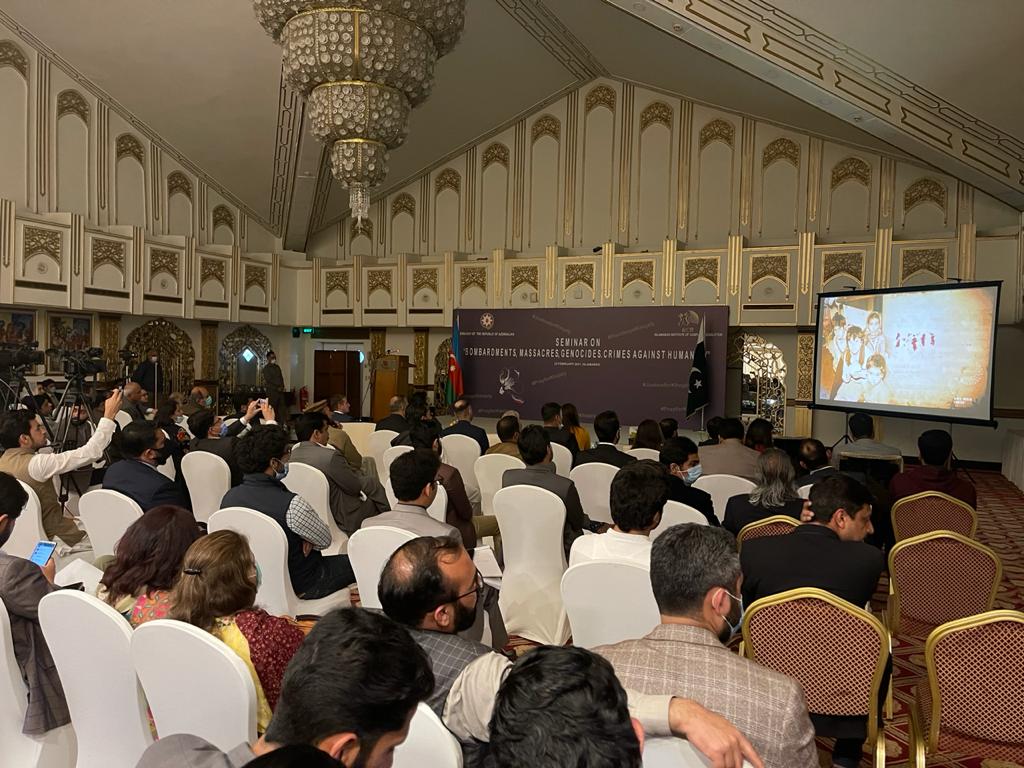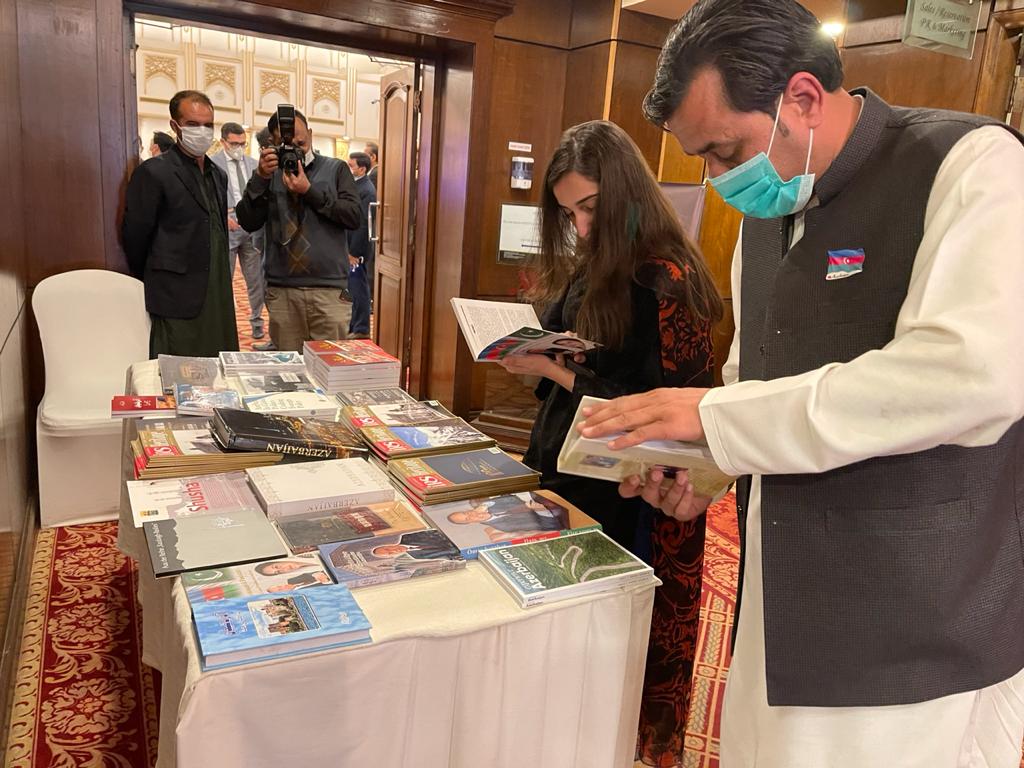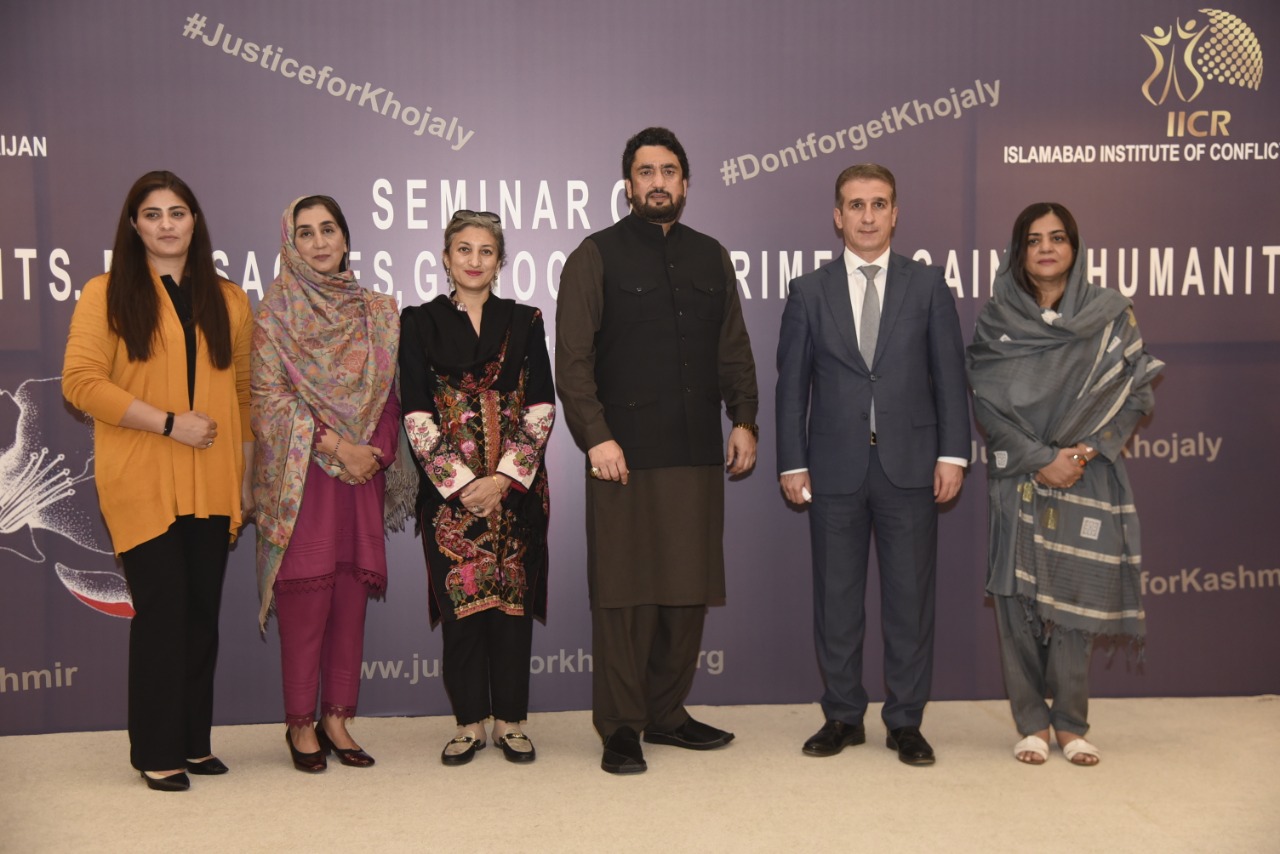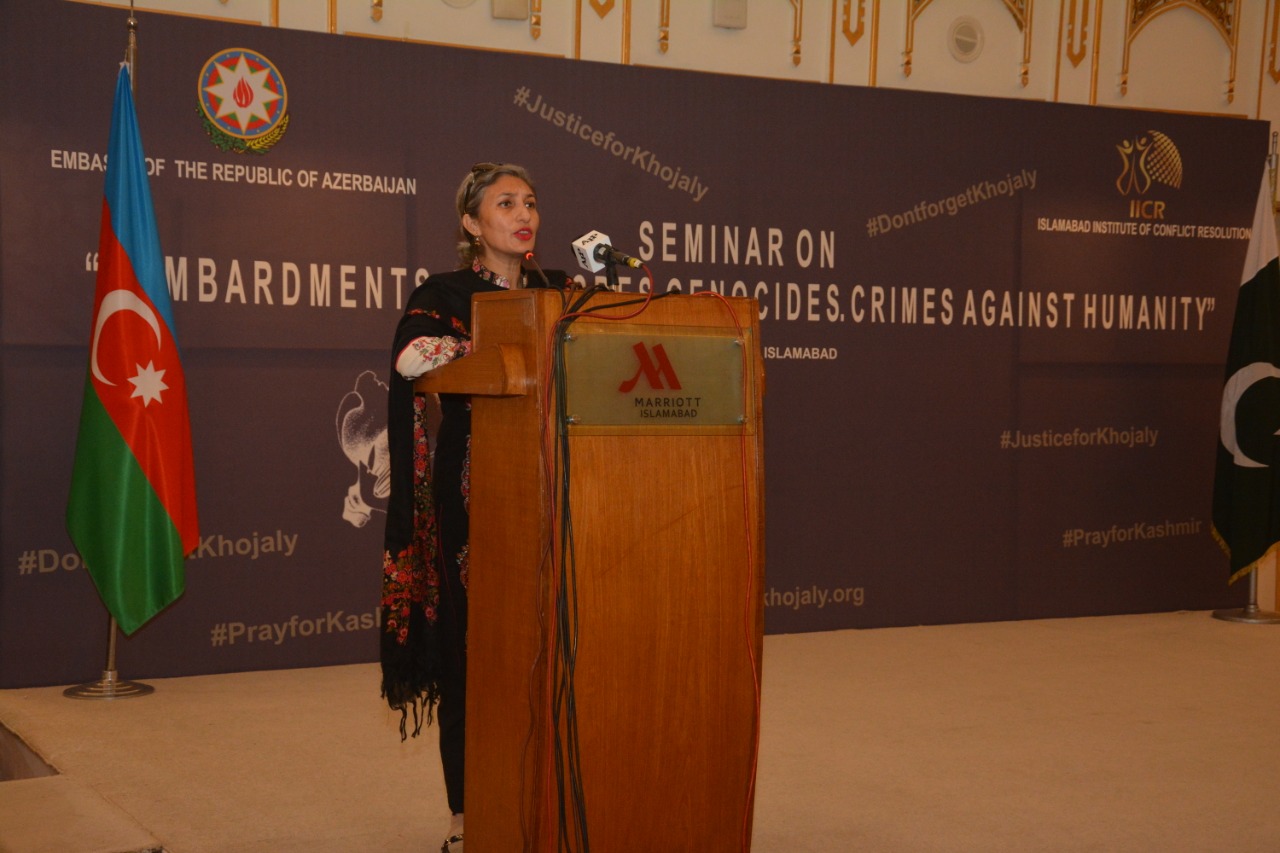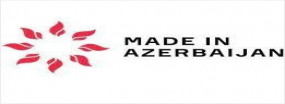Khojaly Genocide was commemorated in Pakistan
The Embassy of the Republic of Azerbaijan to Pakistan has organized a seminar on “Bombardments, Massacres, Genocides, Crimes Against Humanity” dedicated to the 29th anniversary of the Khojaly genocide in collaboration with the Institute of Conflict Resolution, one of the specialized Think Tanks of this country.
The Federal Minister of Pakistan, Chairman of the Parliamentary Committee on Kashmir Affairs in the National Assembly Shahriyar Afridi attended the event as a chief guest, where the head of the Institute of Conflict Resolution, Sabah Aslam, Defense Analyst, retired Lieutenant General Amjad Shoaib, Professor of Defense and Strategic Studies at Quaid-i-Azam University Dr. Selma Malik, a number of Pakistani MPs, diplomats, youth, and university students, members of the media and the public were also present.
After the national anthems of the two countries, the commemoration of the victims of the genocide, and the screening of a documentary on the Khojaly genocide prepared by the support of the Heydar Aliyev Foundation, the head of the Islamabad Conflict Resolution Institute, Sabah Aslam opened the seminar and gave information about the complications and consequences of the Khojaly genocide.
Ali Alizada, the Ambassador of Azerbaijan to Pakistan, started his speech by stating that the “Khojaly massacre was a continuation of the 200-year-old policy of genocide and ethnic cleansing committed by Armenian chauvinists and nationalists against Azerbaijani people throughout history”. He said that the Armenian military-political leadership continued its crimes against the civilian population and innocent people of Azerbaijan during the Great Patriotic War as well and this was due to the fact that, the perpetrators of massacres such as the Khojaly genocide still go unpunished. By subjecting and killing hundreds of innocent people, including infants and women, to destructive missile attacks in the Second Karabakh War by the Armenian armed forces, which deliberately destroyed the civilian population of Azerbaijani cities such as Ganja, Barda and Tartar, far from the conflict zone, noting that the massacre was an example of modern Armenian savagery and massacre, Ambassador Ali Alizada said that the international community must show unity and determination against war crimes. Recalling the resolutions adopted by the National Assembly of Pakistan, as well as various standing committees of the Pakistani Senate and Assembly, the Assembly of Khyber Pakhtunkhwa, the Province of Pakistan on the recognition of the Khojaly genocide and the strong condemnation of Armenia's occupation of Azerbaijani lands, Ambassador extended his gratitute to the Government and people of Pakistan for their political and moral support to Azerbaijan during the 44-day war and their principled position against Armenian injustice. Ali Alizada hoped that peace would establish in Kashmir soon and emphasized that UN Security Council resolutions should be implemented on Kashmir.
Noting that the 29th anniversary of the Khojaly genocide is being celebrated this year, the Chief Guest of the event, Federal Minister of Pakistan, Chairman of the Parliamentary Committee on Kashmir Affairs in the National Assembly, Shahriyar Afridi added that the massacre of civilians by Armenians was a crime against humanity. The Federal Minister condemned these crimes against humanity committed in Khojaly, Kashmir, and around the world. Stressing the non-implementation of the UN resolutions which are in favor of the Muslim countries, Shahriyar Afridi regretted that international organizations apply double standarts to many issues related to the Muslim countries.
Retired Lieutenant General Amjad Shoaib and Professor of Defense and Strategic Studies at Quaid-i-Azam University Dr. Selma Malik also spoke about the history of the Khojaly genocide, the brutal killing of innocent civilians by Armenians in Khojaly, and strongly condemned these crimes. Speakers stressed that humanity must not remain silent about the genocides in Khojaly and elsewhere and that all countries and international organizations must demand that the perpetrators of the massacre be brought to justice in order to people to live in peace and tranquility.
The stands reflecting the atrocities committed by Armenians in Khojaly were also exhibited at the event, and visual materials on the Armenia-Azerbaijan Nagorno-Karabakh conflict, as well as the realities of Azerbaijan, were distributed among the participants.
The seminar aroused the interest of the Pakistani public and was widely covered by Pakistan's leading television and other media.

